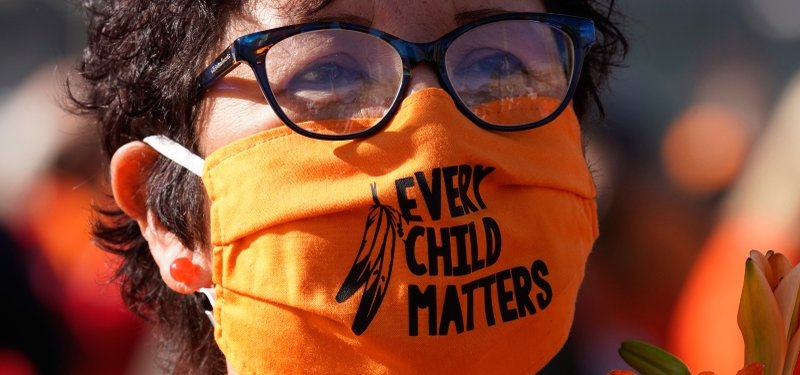
Canada marks first national holiday for indigenous reconciliation
The so-called residential school system, which operated between 1831 and 1996, removed about 150,000 indigenous children from their families. Some were subjected them to abuse, rape and malnutrition at schools in what the Truth and Reconciliation Commission in 2015 called "cultural genocide."
- World
- Reuters
- Published Date: 05:48 | 30 September 2021
- Modified Date: 06:01 | 30 September 2021
Canada on Thursday held its the first National Day for Truth and Reconciliation to honor the lost children and survivors of indigenous schools, following the gruesome discovery of more than 1,000 unmarked graves at two former schools earlier this year.
Run by the government and Christian churches - mostly Catholic - the schools' stated aim was to assimilate indigenous children. Liberal Prime Minister Justin Trudeau's government created the new federal holiday in June.
"The legacy of colonization has had devastating repercussions for indigenous peoples, including the loss of language, culture and heritage," said Governor General Mary May Simon, the first aboriginal person to serve as the representative in Canada of its head of state, Queen Elizabeth.
"This pain has been felt from generation to generation, and it continues today," she added in a statement.
The queen sent a message, saying she joined with Canadians "to reflect on the painful history that Indigenous peoples endured in residential schools in Canada, and on the work that remains to heal and to continue to build an inclusive society."
The discovery of the unmarked graves reopened the deep wounds left by Canada's European colonization and the subsequent efforts to assimilate indigenous cultures. Today indigenous peoples suffer from higher levels of poverty and violence, and shorter life expectancies.
"On this first National Day for Truth and Reconciliation, we reflect on the lasting impacts of residential schools," Trudeau said on Thursday, a day after marking the holiday at an event held on the lawn in front of parliament. "We remember the children who never made it home."
A ceremony is being held in front of parliament on Thursday, and similar events are being held around the country.
Indigenous leaders have said the day should be recognized also by provinces, so that it is not limited to federal employees. For example Ontario, the most populous province, is not recognizing the holiday and so schools, the stock market and most businesses remain open.
"If the government fails to properly acknowledge the theft of thousands of our children, that is part of the problem. They are the problem," New Democrat indigenous lawmaker Sol Mamakwa told the Canada Broadcasting Corp, referring to Ontario.
Multiple cities scrapped Canada Day celebrations on July 1 after the discovery of hundreds of children's remains, and the government has ordered all federal buildings to fly the flag at half mast since May 30.
- Trump slams Afghan withdrawal 'incompetence' on 9/11 anniversary
- Paris job centres raise security before unemployment benefits reform
- N. Korea test-fires anti-aircraft missile: state media
- Safe to give COVID-19 shot and flu vaccine at the same time - UK study
- US strongly condemns Ethiopia for expelling UN officials

